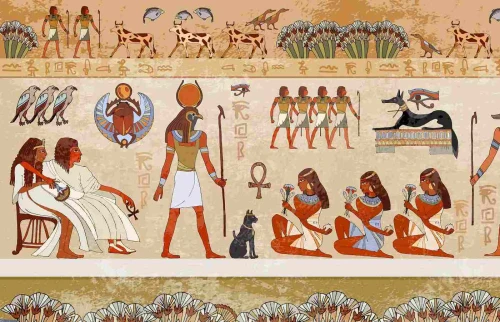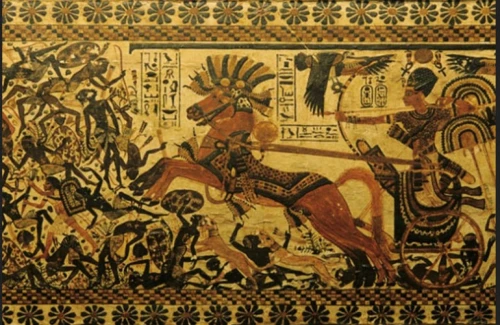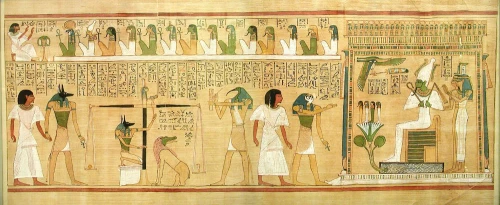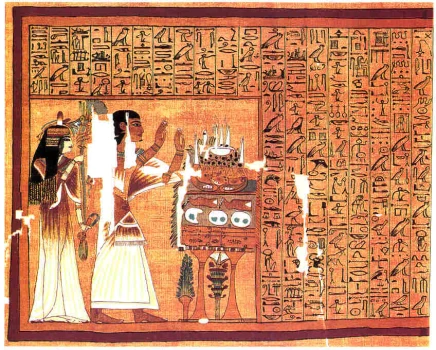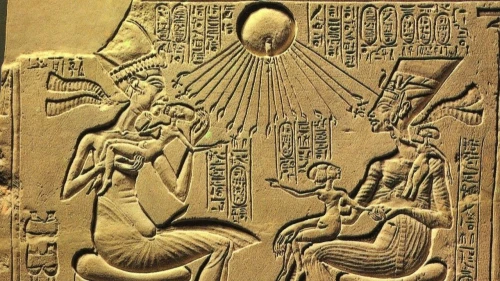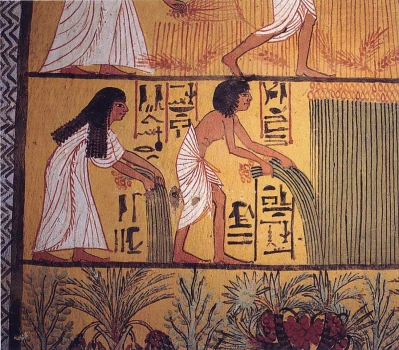
FOOD OF THE GODS Paintings and inscriptions on tomb and temple walls show all the different foods considered worthy of the gods. The walls of Karnak Temple indicate that Amun-Re (when he appeared as a fertility god) preferred offerings of vegetables and fresh flowers. To appease the violent side of her nature, and because she was the goddess of music, love, and dance, Hathor was given wine.
Horus the child was presented with milk. These personalized offerings were accompanied by menus that also might have included roasts of beef and gazelle, ducks, game birds, vegetables and fruits of all kinds, bread, cake, beer, wine, and milk. The idea of food of the gods's was an exchange. The pharaoh, by way of the priests, provided specific foods that were thought to please the gods. The food offering was one of many rituals performed each day to ensure that Egypt remained in a state of MAAT, or divine order.
Early each morning temple workers began preparations for the daily offering. Every step of the preparation was closely supervised, for no mistakes could be made. The kitchens baked fresh bread and cakes in several different shapes; roasted joints of beef, wild game, and ducks; prepared vegetables and fruits; and brewed the best quality beer.
Before the gods could be served, each group of food was purified with water, natron, and burning incense. Food bearers carried platters piled high with every kind of food and set them on offering tables in front of the god's shrine. When the shrine was opened, a selection of food was taken from each tray, placed on a special serving platter, and presented to the cult statue of the god. Later the food was distributed among the priests, except for the loaves of bread; they remained on the offering table until the next morning when the ceremony would be repeated. The only food item that was never served to the gods was fish. There are two theories about why fish have not been deemed a food of the gods.
One idea is that fish were sacred to the gods: A pair of fish, Abu, and Ant, swam on either side of the sun god Re's boat to ward off evil spirits when it passed through the Underworld. Another possibility is that when the god Osiris was hacked to bits, his phallus was thrown into the Nile and eaten by a fish.
 English
English
 Spain
Spain

